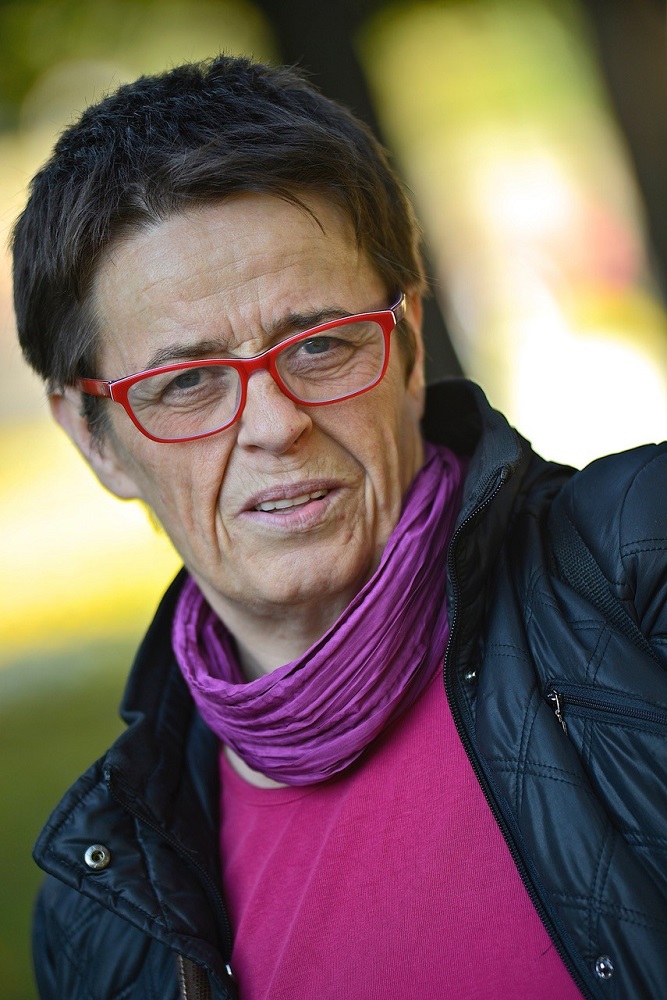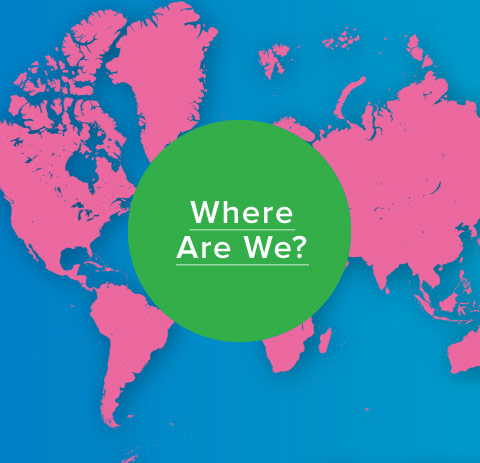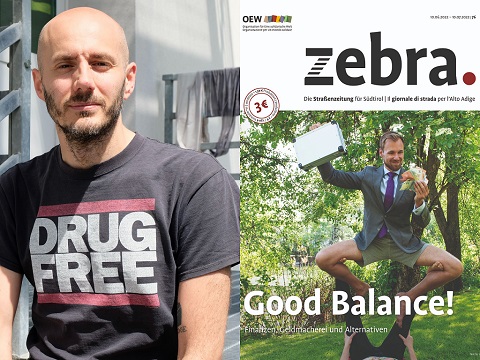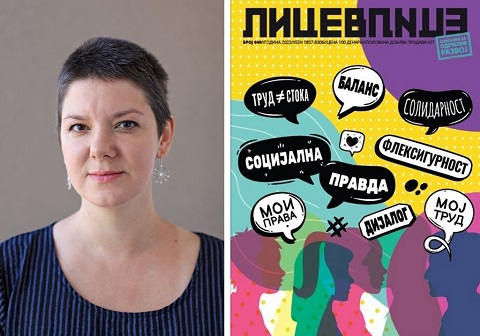By Michaela Gründler, Apropos
Apropos, the street paper of Salzburg, Austria, recently celebrated its 20th anniversary. To mark the occasion, one of its longest serving vendors, Luise Slamanug, sat down with the publication’s chief editor, Michaela Gründler, for an interview about what life has been like at Apropos over the last 20 years.
Apropos: How did you end up at the street paper?
Luise Slamanig: I’ve always listened to Radio Salzburg while I’m doing housework. That’s how I heard about the street paper in Salzburg. On the same evening, my then husband, Heini, saw a report on television and said to me: “Buy a newspaper if you run into a seller.” So the next day I went to the ‘Saftladen’ on the main street of the Schallmoos district, where the newspaper distribution took place at the time. I actually just wanted to buy a newspaper to read. But then the former chief editor, who was there with a few sellers, said to me: “Wouldn’t you like to be a seller yourself?” The newspaper was then in its third edition. I’ve been selling the whole time since then, apart from a couple of illness-related interruptions.
How did it go for you on your first selling day?
I was very enthusiastic. I went to the corner of Sternneckstrasse with my 20 newspapers and stood at the junction just like a daily newspaper hawker. A stylish guy rolled down his car window and said “Give me a newspaper”. The cars were honking behind him because it took him a while to give me the money. He just said, “If they carry on honking I’ll have to turn on my blue light.” It turned out that he was a police officer from the CID, from the drug squad. (laughs) I sold the newspapers within an hour. I went to back to the ‘Saftladen’ with the intention to hand over the money because I thought that was what we had to do. But I was allowed to keep the money because each new seller gets the first 20 copies free, as start-up capital, so to speak. Then you buy each one for half the price and sell it for double on the street.

Did it continue to go well?
It varied. Though definitely not as much as on the first day with 20 papers in an hour. At first I had to explain to a lot of people what a street newspaper actually is. It was also difficult to sell during the day, it was easier in the evenings as then there were more creative people around. A lot of people asked “Is this like the Augustin in Vienna?” I’m the sort of person who has to approach people. If I stand there silently, like I did during depressive episodes, I sell nothing. When I started a lot of people said to me “Get a job!”. That always got really got me. I mean, selling the newspaper means I’m working. Now I’m really proud: I only stop selling newspapers when I’m ready to drop. I consider it to be life’s work. My life has meaning to it again thanks to the newspaper. I’ve even got more into writing with the writing workshops that Apropos offer. My feeling of self-worth has really improved thanks to the readings and the books we’ve published.
What is important to you when it comes to selling?
In the beginning the newspaper mainly featured stories about how people became homeless. I’m pleased that the newspaper has changed in terms of content and has become more positive. It brings you down permanently if you constantly read about people’s fate and nothing else. For me, it’s important that the newspaper is read and is received well. I mean, I’m not just selling, I’m writing too. Not so long ago a woman with two small children came up to me and said “I know you from the newspaper.” That made me very happy. I’ve been accepted by society again thanks to the newspaper. If you are poor, you’re marginalised and not worth anything.
You were homeless before. Why?
I was sent from the job centre in Kärnten to Voralberg, where I worked as a seamstress. Eventually I just couldn’t hack the piecework anymore. The psychiatric clinic told me that I should find other work. After that, I got a secure job in counselling, I even had a sort of family connection because I also lived there. It was during this time that I met my husband-to-be Heini and we got closer. We eventually moved into a room at a bed and breakfast, from which we were later evicted. My husband was seized again and again for alimony. When he was sober he paid back the alimony with odd jobs. At some point I lost my job too. So there I was with my no fixed abode. I never dared to tell my mother in Kärnten what was going on. I had my pride. The experience of homelessness was important for me, but I never want to experience it again.
In what way was it important for you to have been homeless?
People are very quick to pass judgement on the homeless. You can end up in this position so quickly. I’ve experienced it for myself.
What did you miss the most back then?
That I wasn’t able to take care of myself. Always wearing the same clothes, showers in the public baths, or at a friend’s… If I smell that odour on a bus, I think back to that time and it shakes me. I also never felt comfortable at the soup kitchens. I felt so embarrassed knocking on the door and asking for food. One time, a homeless man who sat and ate soup next to me at the monastery in Bregenz said to me that I could work the streets to make some money. That really shocked me.
What helped you to overcome this difficult time?
Heini. No matter how difficult our relationship was, he always stood by me and defended me. That solidarity was essential for my survival.
How did you find your way out of homelessness again?
We got to know a psychologist in Vorarlberg who said that we would have a chance to get out of homelessness in Salzburg. It was hard to find a way out of it again but it worked. We went to the Verein Treffpunkt organisation in Salzburg. Heini managed to get back on his feet because of this. The organisation carried out relocations and decluttering, and Heini was also employed there for a while in socio-economical operations. Heinz Schoibl from Verein Treffpunkt and Moser Elizabeth from Frauentreffpunkt really helped us and fought our cases for us at the authorities. I will be forever grateful to them for that. We then lived in a basement apartment on Rudolf-Spänglerstrasee until we were entitled to a council house a few years later.
Now I’m really proud: I only stop selling newspapers when I’m ready to drop. I consider it to be life’s work
What did you learn most while you were homeless?
That you feel ashamed very quickly. I had a very Christian upbringing. For us it was always: donate to the church instead of taking something. But when I was homeless I didn’t even have the confidence to greet my former work colleagues any more. But I also learned that we help each other. Among us homeless people there was always a strong feeling of solidarity. I once heard a saying from my boss at counselling and it still inspires me to this day: Whenever you think that you can’t go on, a little light comes from somewhere. I learnt never to lose hope. I learnt to survive.
What is your motto?
Never give up. There is always a way somehow. I’ve lived by this saying since 1979. It hangs in my studio apartment now. Sayings and quotes are incredibly helpful.
What helps you to keep your courage in your darkest hours?
Speaking helps me process things, otherwise the thoughts just go around in circles. I’ve been feeling much better now that my psychotherapy is being paid for. I feel so much. And I know that not everyone can get me. Walking really helps me too. Walking and rambling helps clear my head. Good ideas also come to me then. And the fact that I’ve found my way back to my family also makes me very happy. I have eight brothers and sisters. Ever since Heini died I have often felt very lonely. This big family has given me strength, despite us having fought a lot. My work at Apropos helps as well, obviously.
You’re an Apropos veteran, so to speak. You were 40 years old when you started selling street papers and now you have just turned 60. What were your personal highlights of the past 20 years?
The biggest highlight was the flight to the street paper conference in Berlin that I took with Hanna, the writing workshop author. I had the confidence to talk about myself in public at this event. A wonderful friendship with Hanna came to be because of it. Festival visits with Apropos have also given a lot to me. I am also extremely proud that Heinz Fischer, the federal president, came to visit the editorial department. I presented a few texts at the Vagabond Poetry Slam in Linz. When our home book was published we had been invited to sit in the box at the festival hall to see an advent choir. I was so moved and happy that I cried. Me, in a theatre box! It was also brilliant that we won the People’s Culture Prize with the book ‘Denk ich an Heimat [I think of home]’. That really gave me a boost. Another highlight was when we were part of the ‘Wunschbilder’ exhibition at the Salzburg Museum, that we were able to produce radio programmes at the radio factory, that we have a voice with the newspaper – it’s simply fantastic that we can share our stories and be visible. Many customers say that they mainly buy the newspaper because there are things in there that they would not read anywhere else. Many believe it is the best newspaper. Such feedback really lifts my spirits.
Never give up. There is always a way somehow. I’ve lived by this saying since 1979.
You’re not just one of the first sellers but you’re also always one of the first people to join in with all Apropos projects – regardless whether it’s about Apropos books, audio books, radio programmes, writing workshops, readings, culture projects or yoga. Why do you always get involved straight away?
Because it gives my life meaning again. I look over everything carefully first. If it feels good, then I continue.
What does Apropos mean to you?
Without Apropos I could not live any more. It is a mouthpiece with which we can introduce ourselves and a community in which we can celebrate together and where someone is always there ready to listen to my concerns. Apropos has become a real family to me. The joint activities mean very much to me. I’ve also taken part in the Apropos German course a couple of times because it interested me and I like my Romanian colleagues. When I think about how the Romanian salespeople used to speak at the Spar in Itzling and how they speak now, a lot really has changed there. The training with the voice coach for the 15th anniversary reading also inspired me. This taught me to how to act like a queen. Apropos’ rivals most certainly never imagined that we would ever have such a status. We have an excellent image. If we had stuck with the former editorial concept we would have disappeared a long time ago. Joy has returned to my life by being with Apropos. You can get involved and come into contact with people.
What do you do in your free time?
Listen to rock music, meet cool people, go to the Academy Bar. Since the Mozart matinee this year at the festival hall I also enjoy listening to classical music. Before that I never would have thought that this music could calm me so much. It’s important for me not to become senile. This happens when you don’t occupy yourself with anything anymore. When I was diagnosed with Parkinson’s I withdrew socially because I was so embarrassed by my tremors. I couldn’t write anymore either because my hand trembled so much. It’s better now with the tablets and fortunately I can write again. It also does me good to unwind in nature. I can always refuel there.
Without Apropos I could not live any more. It is a mouthpiece with which we can introduce ourselves and a community in which we can celebrate together and where someone is always there ready to listen to my concerns. Apropos has become a real family to me.
What is important to you in life?
Helping each other, even in difficult situations. My colleagues sold newspapers for me when I was in a bad situation due to health or finances. I could barely accept this at first but I was very touched by it. I was also delighted by the gift basket my colleagues gave to me for my 60th birthday. I had actually struggled with turning 60 and originally did not want to celebrate at all. 60 is certainly a special phase of life. I don’t want the clock to stop ticking, which is why it’s important to me, on Apropos’ 20th anniversary, that we have at least one minute of silence for all of those that have left us, to honour the colleagues that have sold with us. Many of them were good companions during my life. Erwin the seller, for example, laid the parquet floor for me that has been in my basement for three years. Once he came to me with coffee and cake in the Schmankerl restaurant and said it was to “keep the meat on my bones”. These are things that have helped me through hard times.
What do you wish for the future?
Health! And that Apropos continues to be successful and that it will never go out of business. There would be something missing in Salzburg if Apropos ceased to exist.
Translated from German by K. Dwyer




















